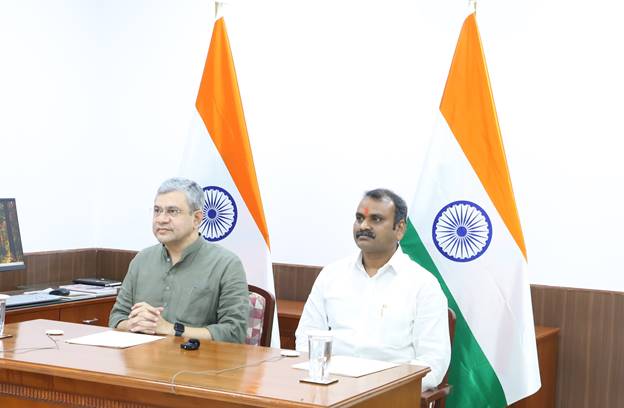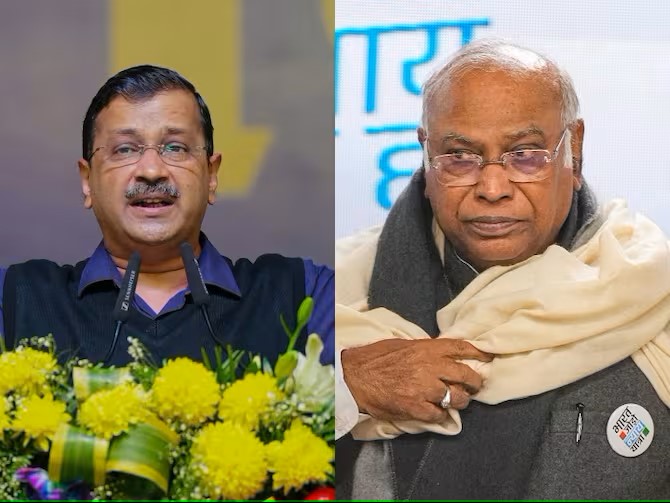In a meaningful review meeting held in Hyderabad, Union Minister Dr. Jitendra Singh praised the invaluable contributions of CSIR institutes based in the city, recognizing their role in advancing drug discovery, genetic diagnostics, and developing affordable Active Pharmaceutical Ingredients (APIs). The gathering brought together directors of three leading scientific institutions — CSIR-IICT, CSIR-CCMB, and CSIR-NGRI — to present their latest innovations and scientific strides, many of which are already transforming lives across India.
 Dr. Singh acknowledged how these institutions, under the continued encouragement and support of Prime Minister Narendra Modi over the past decade, have flourished into beacons of innovation. Their breakthroughs are not only shaping national scientific priorities but also addressing some of the most pressing challenges in public health, sustainability, and disaster preparedness.
Dr. Singh acknowledged how these institutions, under the continued encouragement and support of Prime Minister Narendra Modi over the past decade, have flourished into beacons of innovation. Their breakthroughs are not only shaping national scientific priorities but also addressing some of the most pressing challenges in public health, sustainability, and disaster preparedness.
Dr. D. Srinivasa Reddy, Director of CSIR-IICT, shared how the institute has been driving progress in India’s pharmaceutical and chemical industries. From pioneering novel catalysts for industrial use to developing compostable plastics and sustainable agrochemicals, CSIR-IICT has shown a commitment to both economic and environmental betterment. The development of technologies like the Anaerobic Gas Lift Reactor, which turns biodegradable waste into biogas, reflects a conscious effort to ensure scientific progress benefits the larger society.
Dr. Vinay Nandicoori, Director of CSIR-CCMB, highlighted the institution’s trailblazing legacy in genetic diagnostics and biotechnology. He spoke with pride about CCMB’s development of DNA fingerprinting in India, a technology that has transformed forensics and legal proceedings. During the COVID-19 crisis, the institute swiftly stepped up with indigenous diagnostic kits and contributions to mRNA vaccine technology, underscoring its agility and commitment during emergencies. In a deeply humane initiative, CCMB’s work on sickle cell anemia led to the creation of an affordable and highly sensitive diagnostic kit, offering hope to thousands across underserved regions. Their pioneering efforts in rare disease tracking, wildlife conservation, and startup incubation also demonstrate a rare blend of deep science and societal outreach.
Dr. Prakash Kumar of CSIR-NGRI provided insights into the institution’s essential contributions to earth sciences, particularly in assessing seismic risks and exploring energy and mineral resources. The creation of India’s first strain map to predict earthquake vulnerability, and work in geothermal energy in challenging terrains like Ladakh, are opening new possibilities for safe infrastructure and clean energy. These are the kinds of scientific endeavors that may not make headlines every day but are crucial to building a resilient future for millions.
As the session concluded, Dr. Jitendra Singh expressed heartfelt appreciation for the work done by all three institutes, calling Hyderabad a rising hub of scientific innovation and entrepreneurship. Recognizing the collaborative spirit and the impact of their research, he announced the upcoming CSIR Startup Conclave to be held on April 22–23, 2025. The event will bring together scientists, entrepreneurs, and industry leaders, fostering partnerships that could turn bold ideas into real-world solutions.
Through his remarks, the Minister reaffirmed the government’s commitment to promoting a science-driven, self-reliant India. His words resonated with a sense of pride and hope — that through shared effort and visionary leadership, Indian science is not only achieving global relevance but also serving humanity with compassion and purpose.




